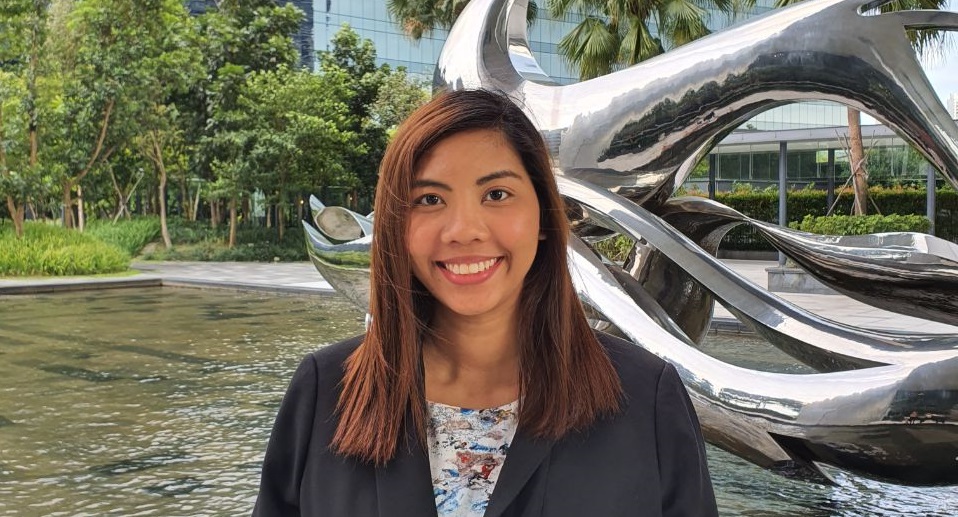
Meet Revathi, a Premier Service Associate (Voice) Team Leader at HSBC. She enjoys interacting with people and thrives in the fast-paced life at the contact centre - handling queries, conducting investigations, and resolving issues for a broad range of banking customers over the phone. For her dedication to her work and contribution to the bank, Revathi was awarded the IBF Outstanding Financial Services Professional Award in 2019.
How did Revathi achieve success and progress in her career since joining the bank in 2015? She dishes out some valuable advice.
Taking Ownership of Your Learning Journey
Revathi considers her eagerness to learn to be one of her best assets. For her, learning is how she equips herself with the necessary skills to excel at her job.
“I think if you want to advance in your career, you always have to learn new skills,” “[Only] then will you be able to advance, because if you’re not learning anything new, then you’re just staying stagnant.”
Revathi’s Professional Conversion Programme (PCP) training imparted a broad variety of knowledge and skills that would help her progress in her career. These included digital banking, heart for service design, as well as communication and relationship-building skills that would help her excel in her profession.
The programme is aimed at mid-career PMETs who are keen to re-skill and grow in their career, and helps employers and employees alike tackle the challenges associated with rapid transformation of the banking industry through structured training and financial support respectively.
During her training in digital banking, she learnt about how to stay vigilant against digital risks, such as avoiding using unsecured Wi-Fi connections or identifying data privacy scams.
In turn, Revathi is now better able to assist her customers in protecting themselves against these dangers. She also has a more comprehensive understanding of the bank’s various digital platforms, and is better equipped to advise customers on how to leverage these channels for their transactions.
Describing her PCP experience as “an eye opener,” Revathi recognises the significant impact the programme has had on her, both professionally and personally. Ignited with a newfound passion for continual learning, she is excited to continue her upward trajectory, especially in the form of further education – she now hopes to pursue a degree and learn a new language.

Keeping an Open Mind
Now leading a team of over 30, Revathi shares that it can be challenging to mentor or teach someone who rejects learning something new simply because they assume it will be too difficult. Helping them see learning as a positive experience is one of the challenges she has to tackle regularly as a team leader.
As the global industry moves toward a digital future, professionals in banking and finance also need to be equipped with new skills not just to survive but thrive in a new era of digital banking and fast-moving operations.
For those in frontline service roles, this means picking up new skills to better service customers through changing channels.
So, if given an opportunity to learn something new, Revathi hopes that more people will keep an open mind.
“When you’re going to learn something different, you cannot have a preconceived perception about what you’re going to learn,” she shares.
“You should have an open mind so that you can fully absorb and really appreciate what you’re learning.”
In other words, be willing to change the way you used to do things and embrace that there may be a better way forward.

Becoming A Mentor
Studies have shown that teaching is one of the most effective ways to learn. Now, as a more effective and skilled customer service professional, Revathi is passing on her valuable knowledge by mentoring the agents in her team to become better communicators and problem solvers.
Part of her PCP training was about service design, a framework about finding the most effective way to build a connection and resolve conflicts based on a customer’s personality and communication preferences.
“Service design is really effective when I handle escalation cases,” she reflects. “Different customers need to be handled and spoken to. You cannot apply the same approach to all escalation cases. Since every case is unique, and we really need to look at each situation and understand what the customer is asking for before we can actually assist or advise.”
“As team leaders, we teach our agents this – how to navigate through these different scenarios and actually settle or resolve an issue during the call itself rather than letting things escalate,” she says. “So it’s not just me that benefits from the PCP programme, the team does as well.”

Finding Motivation in a Career You Enjoy
Revathi believes that since we spend most of our waking hours at work, we should be doing something that makes us feel truly comfortable and happy. If you’re unhappy at work, it can spill over into your personal life and make you feel “negative”.
“I know that not everybody can find something that they love, but you should definitely find something that you do not hate,” she advises. “You should be happy enough that you know when you go to work with a positive attitude, and not a ‘Oh, why am I here’ kind of feeling."
For Revathi, she enjoys the fast pace and ever-evolving nature of customer service, and that keeps her motivated to bring her best to work every day. For her next step, she hopes to move on to a more face-to-face role at one of the bank’s branches. While this will bring new challenges, she is eager and confident to tackle them with the skills and training she’s picked up over the years.

To find out more about how the PCP programme can help you transit your career click here.
This article is part of a series of stories on PMETs who have gone through an upskilling or reskilling transformation journey within the banking and finance industry. It is accurate at the time of publication.
.png?sfvrsn=7a1194d1_1)
 Overview
Overview















.png?sfvrsn=86556ebb_1)
.png?sfvrsn=a8212bcc_1)
.png?sfvrsn=858c63d1_1)
2b4307cf-e91f-4368-ac62-cf234d6d2b1c.png?sfvrsn=212575fd_1)